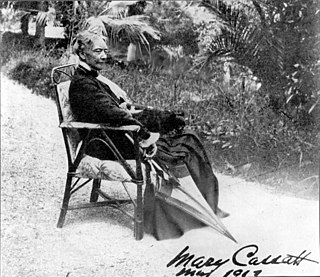A Quote by James McBride
Sometimes it seemed like the truth was a bandy-legged soul who dashed from one side of the world to the other and I could never find him.
Related Quotes
Never do I argue with a man with a desire to hear him say what is wrong, or to expose him and win victory over him. Whenever I face an opponent in debate I silently pray - O Lord, help him so that truth may flow from his heart and on his tongue, and so that if truth is on my side, he may follow me; and if truth be on his side, I may follow him.
It seemed to me certain, and I still think so today, that one can never wrestle enough with God if one does so out of pure regard for the truth. Christ likes us to prefer truth to him because, before being Christ, he is truth. If one turns aside from him to go toward the truth, one will not go far before falling into his arms.
No one can give a definition of the soul. But we know what it feels like. The soul is the sense of something higher than ourselves, something that stirs in us thoughts, hopes, and aspirations which go out to the world of goodness, truth and beauty. The soul is a burning desire to breathe in this world of light and never to lose it--to remain children of light.
Vowels were something else. He didn't like them and they didn't like him. There were only five of them, but they seemed to be everywhere. Why, you could go through twenty words without bumping into some of the shyer consonants, but it seemed as if you couldn't tiptoe past a syllable without waking up a vowel. Consonants, you know pretty much where you stood, but you could never trust a vowel.
His gaze burned into mine, like he could see past my eyes into parts of me no one had ever seen, and I knew I was seeing the same in him. No one else had ever seen him so vulnerable before, like if I pushed him away, he might crumble into pieces that could never be put together again. Yet there was strength, too. He was strong beneath that fragile need, and I knew that I could never fall with him next to me. If I tripped, he would catch me. If I lost my balance, he would find it.
I would still describe myself as a hacker. I still remember feeling the magic, the sense of discovery, when I first connected to a bulletin board. It seemed like the world was somehow brighter, the greens were greener. Like I'd stepped through a portal to the other side. I knew back then that things would never be the same again for me.
I have never really got used to being on this earth. Sometimes I think our presence here is due to a cosmic blunder, that we were meant for another planet altogether, with other arrangements, and other laws, and other, grimmer skies. I try to imagine it, our true place, off on the far side of the galaxy, whirling and whirling. And the ones who were meant for here, are they out there, baffled and homesick, like us? No, they would have become extinct long ago. How could they survive, these gentle earthlings, in a world that was made to contain us.
God, I loved him. I could insist I was okay with just being friends, that I'd find someone else and get over him, but I was fooling myself. There was no getting past this. I loved him, and fifty years from now we could be married to other people, never exchanged so much as a kiss, and I'd still looking into his eyes and know he was the one. He'd always be the one.
Sometimes by a woodland stream he watched the water rush over the pebbled bed, its tiny modulations of bounce and flow. A woman's body was like that. If you watched it carefully enough you could see how it moved to the rhythm of the world, the deep rhythm, the music below the music, the truth below the truth. He believed in this hidden truth the way other men believed in God or love, believed that truth was in fact always hidden, that the apparent, the overt, was invariably a kind of lie.
It was strange to see someone you have only known alone begin interacting with other people, for that somebody known to you disappears and is replaced by a different, more complex, person. You watch him revolve in this new company, revealing new facets, and there is nothing you can do but hope you like these other sides as much as you like the side that seemed whole when it faced only you.






































